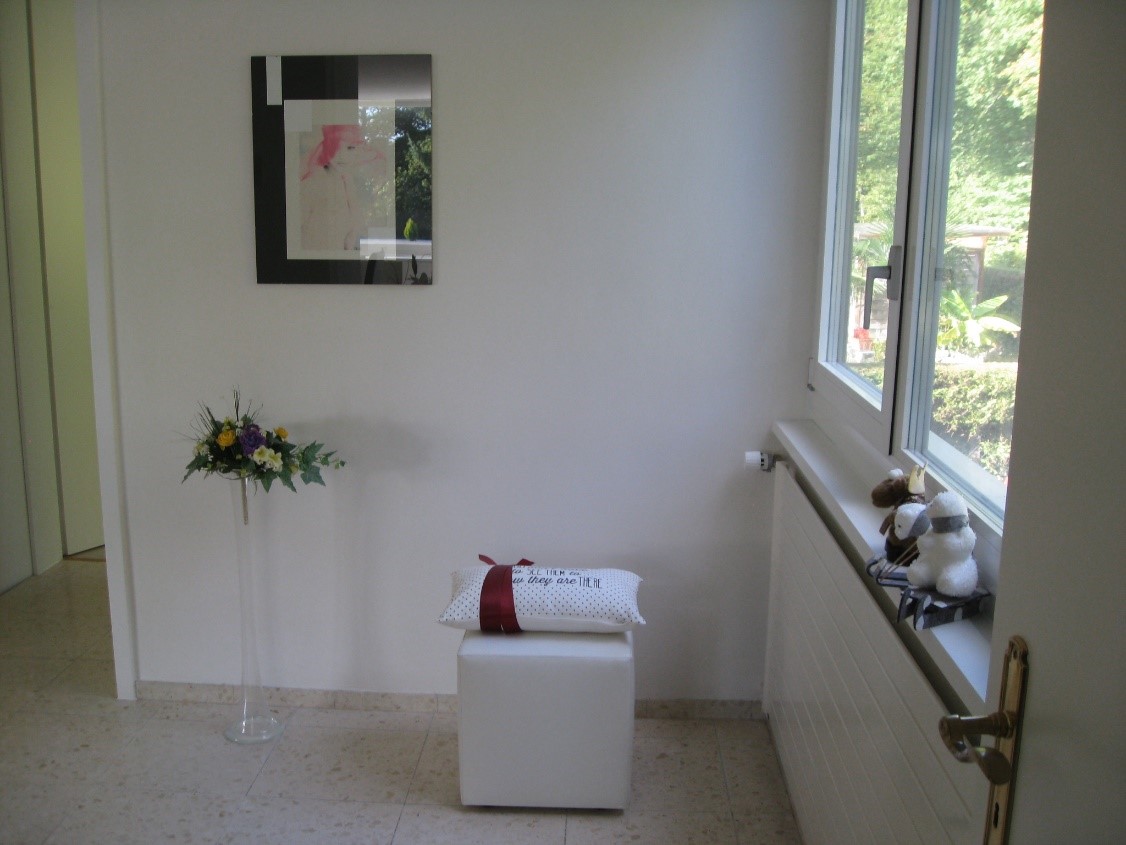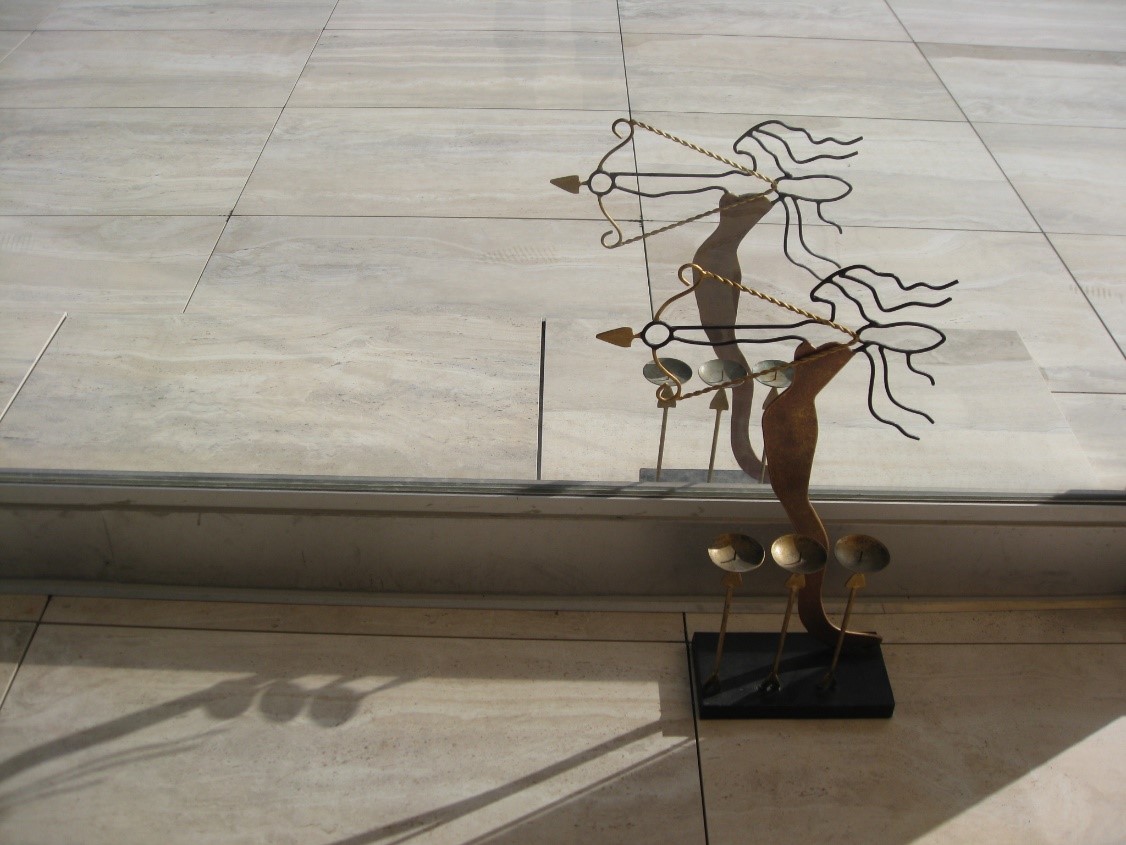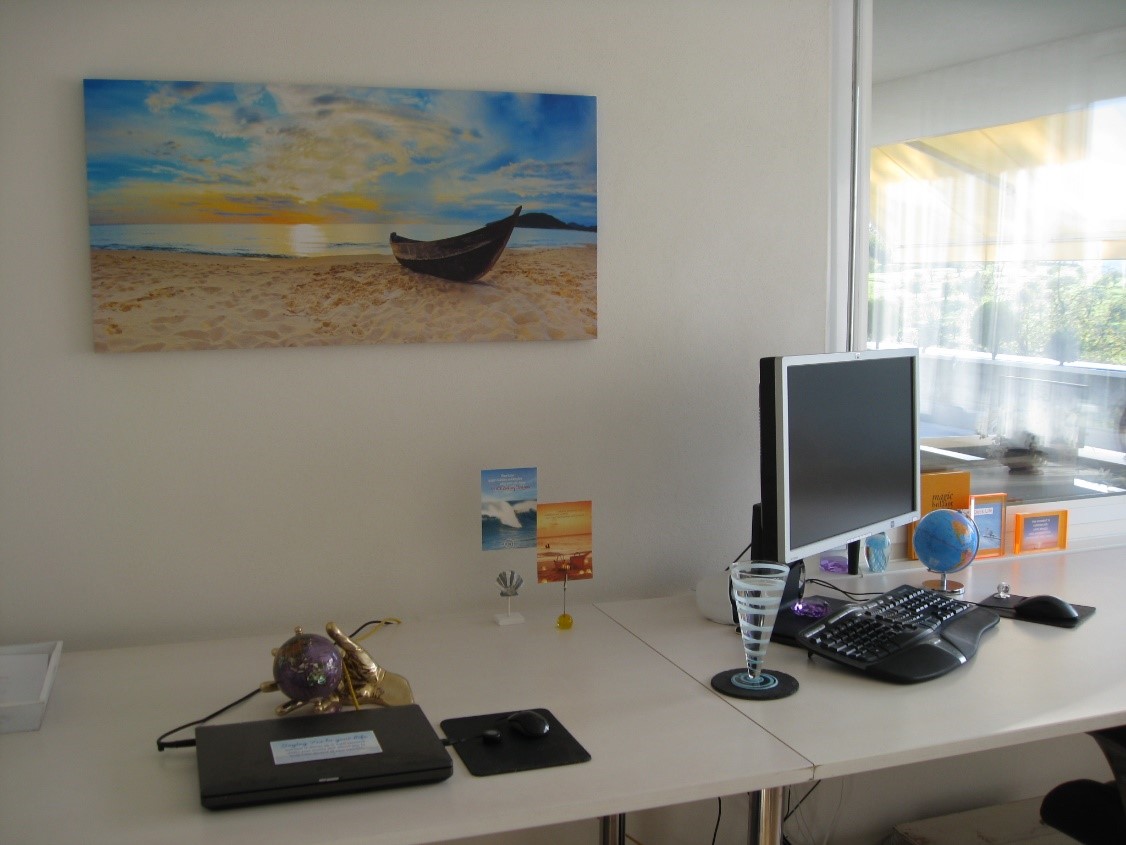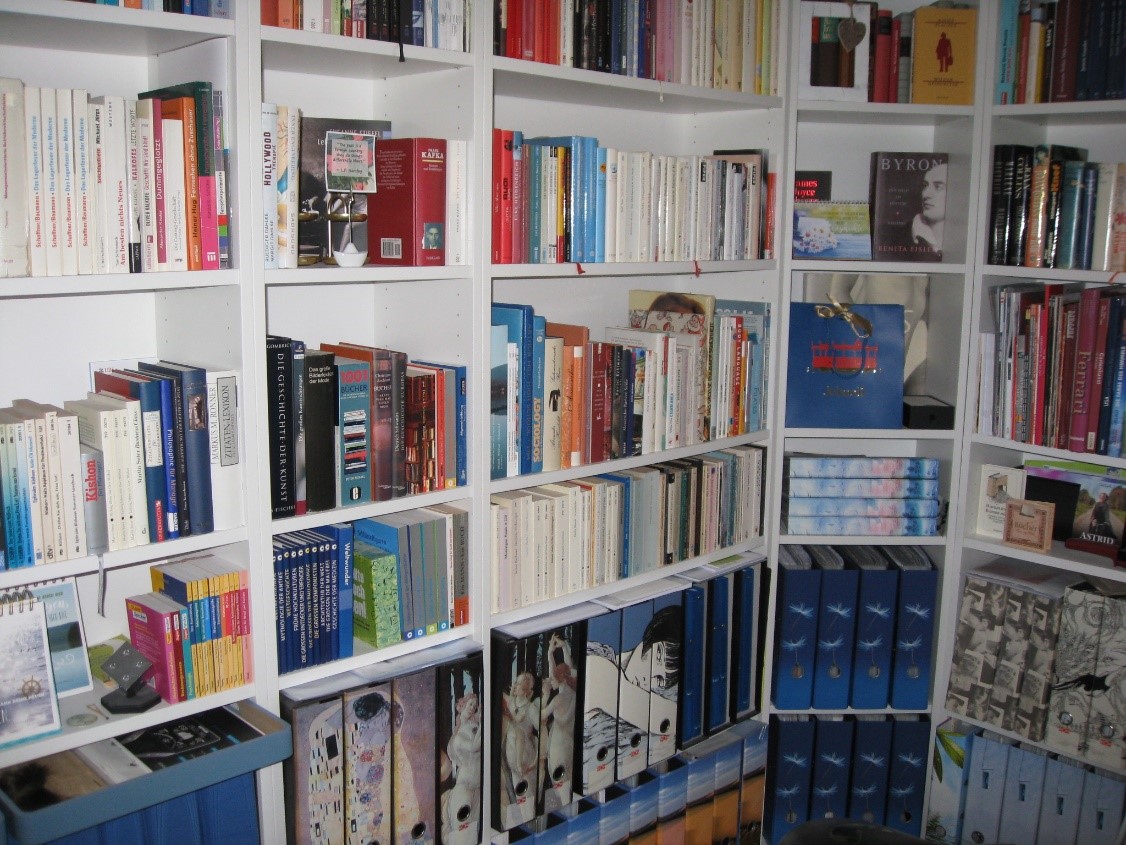Blog
Decluttering without «Sparking Joy Mania»!
(pic: roses in my backyard)
If 1/3 of our items sparks joy, we have a very joyful home!
Let’s see how we get there.
Joy is important, no question, most of us should be more joyful! And yes, our homes could spark more joy! Decluttering sure matters, we are drowning in stuff. Clutter is having an increasing impact on our lives. Decluttering doesn’t just affect the material level, but also the mental, emotional, physical, digital, spiritual, health level and more. A good clearing out sets free a lot of energy – it’s a boost in so many ways. Similar to multitasking, clutter overloads our senses, impairs our ability to think openly & creatively, makes us feel more nervous & stressed. Clutter is a constant «I should», «I have to» in our head. Too much stuff robs us of mental energy, leaves us feeling anxious, tired, overwhelmed, frustrated. And we furthermore waste time looking for things we can’t find right away. Clutter is causing a lot of people a lot of pain. It’s not just stuff on the floor and in the closet. It also represents postponed decisions, obsolete thoughts & ideas, unhealthy relationships, painful memories, bad habits, and more. Anything unfinished, unresolved is clutter in a way. It’s hard to move ahead if our minds, hearts & hands are full of junk.
Our zeitgeist demands to declutter, to let go of needless thoughts & things. Plenty of products & services out there advocate: Get rid of that clutter in the house and that nonsense in the head and bring in the magic, please! The mundane subject «decluttering», combined with a decent portion of wellness, spirituality & esoterism and a strong desire for magic, brings out international bestsellers like «The Life-Changing Magic of Tidying Up» by Japanese organizing queen Marie Kondō.
Do I use the «KonMari Method» for my home? No. Anyway my place is well decluttered – and sparks a lot of joy!
I use a much older method – the «Morris Method» (we come to that in a little while).
At the end of a decent decluttering, about one third of the remaining stuff will spark joy! Without even raising the «joy question», means without unnecessary additional pressure. Constant «sparking joy considerations» – similar to esoteric «happy pressure» or permanent «positive thinking terror» – can add an additional layer of stress to the decluttering process and our life in general. Which no one really needs.
Based on my long decluttering experience, I assure you:
If 1/3 of your items sparks joy, you have a very joyful home!
The «joy question» takes care of itself, we don’t have to worry about it. It happens naturally, as a byproduct of a decent decluttering process. I saw that time & time again.
And – even worse – the «KonMari Method» can lead to
excessive buying of new stuff following «discarding mania».
Because too many items did not spark (enough) joy. But we still need or want them somehow. So let’s get new stuff, let that joy enter our home!
Just an example: Some 3/5 of all clothes worldwide are trashed within one year after production (according to McKinsey and other sources). The majority of clothes is thrown away after less than a year. That is no joyful news at all. That is sickness.
Too many people constantly want to declutter
and at the same time open shopping apps & sites!
Of course, if things are really ugly, annoying, worn out, broken, obsolete, emotionally painful etc., go ahead and throw or give the things away (and replace them, if necessary). Or if you have the same stuff in various versions – without explicitly collecting. Or if you have things you don’t really need. But don’t take the «sparking joy command» as a gospel. Decluttering should not urge us to buy a lot of new stuff! We are facing severe environmental problems all over the globe, caused or aggravated by desperate overconsumption.
As a matter of fact, a lot of things are «just» useful, and that’s good enough. There is absolutely no need to compulsively replace items here & there & everywhere. On top of that, the new things might not spark much more joy than the old ones after a while. A never-ending excessive shopping circle …
Better keep an eye on sustainability:
RE-using before RE-cycling before (RE)-buying!
It’s not about rigid consumption restraint (we need that shopping pleasure sometimes!), but about balance and a different perception in a bigger context. We all form a greater whole, one big «web of life». We all depend on each other, people on people, people on animals & plants, ultimately everybody on everbody & everything. Currently we would need more than 1.7 earths (global average) to restore natural resources (US: 5 earths!).
Earths needed to restore natural resources, 2018
(pic by Swiss news portal «watson», data by «Global Footprint»)

No, my toilet brush, my cleaning utensils in my home don’t spark joy. And they don’t have to, they’re useful, someone has to do the dirty jobs! No, my papers (administration, organization, bills, taxes, receipts, filings, development and much more) don’t spark joy, but it’s convenient to have everything ready to hand, neatly arranged. A lot of items don’t really spark joy, but «necessary», «useful», «functioning», «convenient», «sustainable» or «natural» are arguments, too. Somewhere on this planet I could find a replacement for many items in my home that don’t spark enough joy. But why? There are enough items sparking joy, especially those in my field of view. We don’t live in a «rainbow-butterfly-unicorn-picture-perfect-world»! We have to do all sorts of paperwork, logistics, handling, cleaning, unpleasant work in general. Joyful matters hopefully also brighten up our days. But a lot just has to be done somehow, and it’s good enough if we can easily find & handle those things – to save us time & energy. And that’s already quite an accomplishment!
And no, not all of my clothes spark joy, some are allowed to be «just» useful in one way or another. There are various degrees of joyful and/or useful, anyway. And of course certain items will be discarded sooner or later, for one reason or another. But hey, I’m not standing in front of my closet, sorting out everything which can’t live up to my «sparking joy expectations» in this particular moment! Getting rid of the better part of my wardrobe, eager to buy a lot of new stuff as soon as possible …
And neither do I get rid of the better part of the rest of my stuff. I rather think twice before I buy the next thing-valuable-bargain-flavor of the month-crap-whatever. Do I have that already in a similar form? Do I really need that? Do I truly like it? Will I really use it? And will I keep using it?
The most important part of decluttering
is the «buying or not buying» part!
Again: The most important part of decluttering – going forward – is the «buying or not buying» part. First & foremost we shouldn’t overbuy. That saves us from frequent unnecessary decluttering in the first place. And excessive consumption just ain’t making much sense in an age of overexploitation of resources and huge environmental problems.
Select consciously, deliberately, sustainably. That is much more important than the «method» you sort & fold & pile your items! Or the «right order of categories» within the decluttering process. Or the time frame for your tidying efforts. Or the number of decluttering books & instructions you digested!
Personally I would start with the stuff in my field of view, the things I see all the time.
Guess what:
It’s not important how you fold your clothes or store your stuff.
Just do it in a clear manner which nicely works for you!
It’s simply a question of personal preferences. And a question of individual space, closets, shelves, stowage etc. at home. A solution is not necessarily better just because it’s Japanese, Indian, Swedish, Swiss (hihi) or however exotic or esoteric. A method is good if you like it, you apply it and it works nicely for you in the long run.
And guess what else:
We can’t just wave a magic wand, declutter once and it’s all done.
In the Western World we have roughly 3 x as much stuff as Japanese have.
On average. So obviously it will take longer. It’s not just organizing «things», but also memorabilia, pictures, papers, everything (personally I have 2/3 of a room devoted to paper!). It naturally takes weeks, months or even years to move fully from a chaotic, overcrowded home to a bright, inviting, productive place. It’s a process, dealing with emotions, memories, beliefs, habits, resistance, change of mindset – and action. And eventually some sort of balance. The amount of time we need to do so is very individual – as everything in the decluttering process. Every person and every home is a universe by itself.
The important thing is that we start & keep going! Most of us can‘t tidy all at once and be done in a few days. It just doesn’t work this way. Most people have too much stuff to get through in one fell swoop. Anyway we better go through our things more than just once. It’s a process, it takes time, that’s fine.
We don’t need to reinvent the wheel when it comes to decluttering!
Wonderful advice has already been given to us a long time ago. Especially one brilliant sentence from the 19th century! It stems from the English all-rounder William Morris (1834 – 1896). Associated with the British «Arts and Crafts Movement», he was a major contributor to the revival of traditional British textile arts and methods of production. William Morris was a pioneer in sustainable production, in focusing on beauty, usefulness and longevity of things, in meaningful work in times of industrialization. «Nothing should be made by man's labour which is not worth making, or which must be made by labour degrading to the makers.» He wanted a life as good as possible, in as many areas as possible, for as many people as possible. He was ahead of his time – and he probably still would be in some way, so many decades later. Morris is recognized as one of the most significant cultural figures of Victorian Britain. He was an artist, craftsmen, textile designer, painter, engineer, architect, poet, novelist, translator, entrepreneur and socialist activist.
Master Morris left us an immortal «golden rule» that should fit everybody:
HAVE NOTHING IN YOUR HOUSE
THAT YOU DO NOT KNOW TO BE USEFUL
OR BELIEVE TO BE BEAUTIFUL
Here lovely illustrated by US artist Lisa Congdon:

Experience (and my personal counting of items!) shows that roughly 2/3 of things in our homes can be attributed more or less to «useful» and 1/3 to «beautiful» (some are both, of course). I’m talking about a reasonably decluttered place here, not a messy home – where a lot of stuff is none of both. Ages ago, poet John Keats put it that way: «A thing of beauty is a joy forever.» The joy question in the decluttering process takes care of itself, don’t worry.
The «Morris Method» is the easiest decluttering method you will ever come across! It’s of timeless simplicity & elegance. I still use it after all these years.
It’s about valuing & cherishing the (remaining) things we have.
The things we deliberately decided to buy, to have, to keep.
Sustainability definitely should play a bigger role in our homes & lives. It’s not about «I got rid of something – what shall I replace it with?» It’s about a conscious «less is more».
Nowadays there are many self-proclaimed «minimalists» who love good design and a clean look – but in their well-designed homes and behind huge wall systems they have tons of stuff, well hidden even from their own self-perception. That’s not what «minimalism» or similar concepts are all about. That’s like standing with one foot in the woods and with the other in the «Mall of America».
Everything at the same time, please: consumption & convenience.
Plus the whole enchilada of self-improvement & lifestyle spirituality.
But we can’t dance on every party! Jumping on every esoteric train, following every spiritual trend, talking about environmental protection and having 200 pair of shoes in the closet just doesn’t make much sense! It’s like talking about yoga, meditation, mindfulness, enlightenment, epigenetics etc. – and running to the Beauty Doc faster than the speed of light! We wanna be & have & experience everything. It’s epidemic …
Some 2,500 years ago, Socrates stated while walking across the market of Athens in ancient Greece: «I see with great pleasure how many things I don’t need!»
Using the simple «Morris Method», we automatically end up with
around 1/3 of items sparking joy – without raising the question!
And that’s a very joyful ratio!
Some items/places in my home that spark joy – or not so much:
My little «Bird Hostel» where all sorts of birds fly in for food:

Make your entrance look inviting!

My living room (I never had a sofa):

Care about some joyful details in your home:

Consciously selected items …

… placed with love in our homes …

… make all the difference!

My little office – a joyful place!

Even an old & small kitchen from 1963 can be turned into a lovely place
(inside the cupboards «useful» can be sufficient for a lot of objects!):

In the bedroom:

Do you really think all the clothes in my/our closet spark joy?
Then you will be eternally discarding & buying in heavy rotation!

I have a lot of books, booklets, folders, papers etc. Do they spark joy?

Are you kidding? The better part doesn’t. Only a minority does.
But a lot of items are pretty useful & quickly at hand. Saves time & energy.

And who on earth has a basement that only sparks joy? Not me!

I could go on & on …
Don’t worry about those useful things in your home.
It’s the overall situation that should spark joy!
And don’t forget a little joy infusion every now & then!

While doing a «Death Cleaning» for my father a couple of years ago, I discovered some interesting facts & figures. I basically counted (yes!) the items in his apartment (and later on in a few other houses & apartments), made some secondary research on human thinking – and finally came across some intriguing «relations».
60,000 thoughts & things!
In the Western World we possess some 60,000 things!
Each one of us – on average. Fascinating! Why?
60,000 is also the number of our daily thoughts – on average!
How many of those 60,000 thoughts are positive, inspiring, helpful?
Only 3 – 5% on average, let’s say some 3,000 positive thoughts.
What about the rest – on average?
Almost 1/3 of our daily thoughts is neutral or helpful to others.
Almost 2/3 are more or less useless or even damaging or painful.
How many things do we need out of these 60,000?
Maybe we only need some 3,000 things …
That still sounds like a lot, but it isn’t – if we count sincerely.
If we count every (!) single item, not groups of items!
And by only doubling our positive, uplifting thoughts & emotions
to 6 – 10% on average, we could be pretty joyful human beings!
You can find more about it here:
«60,000 Reasons for Decluttering with Master Morris»
https://www.besser-fernsehen.ch/blog/entry/60-000-reasons-for-decluttering-with-master-morris.html
https://www.besser-fernsehen.ch/blog/entry/aufraeumen-ausmisten-mit-meister-morris.html (German)
https://www.besser-fernsehen.ch/blog/entry/60-000-gedanken-gegenstaende.html (German)
We live in a (not only, but highly) materialistic world – it’s hard to resist the trappings. We are bombarded with thousands of ads telling us the right stuff is going to make us better, happier, healthier, more attractive, more lovable and successful. Or, as it says in a Ry Cooder song: «All the money in the world is spent on feelin' good.» That’s at least what we are hoping for. We may think our decision to buy an item is based on logic, but it’s more complicated. Along with stuff comes emotional baggage. Things embody our thoughts & emotions, our memories, our hopes & dreams, our plans & resolutions, who we believe we are now – and who we want to be in the future. Getting rid of certain things we’ve purchased can be an admission of failing. There is fear, as stuff is associated with security, wealth, status, comfort, choice, love – you name it. We feel guilty about money, time & energy wasted on too many things. So we keep our stuff to justify our purchases. And what if we throw something out, only to regret it at some point in the future? This «just in case» feeling can paralyze us and keep us from making necessary declutter decisions.
Every item has a story. Memories over memories – including many unpleasant ones. A lot of people keep too many relics of ex-lovers, ex-partners, family members, themselves etc. And lots of «work in progress», never finished, but still around as nagging reminders, capturing thoughts & emotions. Decluttering is not least a way to process our past. If we find the strength to live with less «unfriendly reminders», we are more likely to have clarity in moving on. We all have emotional clutter. But if we recognize & declutter our emotional baggage, we are better equipped to take opportunities that are right in front of us.
And lo & behold: We feel much better at home!
Useful – beautiful … useful – beautiful …
Clutter represents delayed decisions & actions!
It's empowering to go through stuff, finally make a deliberate decision – and act! Keeping, tossing, giving away, donating, selling, whatever. Doing that consciously leaves us feeling more energized, resilient and alive, as our brain can also relax in a decluttered space. Removing unneeded stuff from our homes is comparable with deleting files to create space on a computer. All at once the whole operating system is more efficient! Ultimately we don’t own things – things own us.
On the flip side, it’s possible to be too organized & rigid. Flexibility, spontaneity & imagination go hand in hand with a certain degree of «chaos» and can boost creativity. But too much chaos has the opposite effect. The sweet spot is an individual matter of balance. Ridding clutter from our life can make us more relaxed, determined & productive. It just makes us feel better, in so many ways. Letting go can help us heal old wounds and move forward with new strength & confidence. Decluttering often acts as a gateway to taking care of other aspects of life. People might lose weight, get healthier, stop dumb habits, leave certain jobs or relationships and so on.
So decluttering is definitely an important issue. But «sparking joy» doesn’t need to be the killer criterion for all our decluttering decisions. It better isn’t! Also keep in mind other criteria like «necessary», «useful», «convenient», «meaningful», «sustainable» or «natural».
And guess what:
Human beings like you & me don‘t spark joy all the time.
Still we don’t want to be discarded by loved ones!
Sometimes we are «just» helpful, just functioning, just around.
And sometimes that’s exactly what is needed!
I wish you very joyful Holidays!
PS: «Snoopy Wisdom For Life!»
https://www.besser-fernsehen.ch/blog/entry/snoopy-wisdom-for-life-1-1.html
And some more inspiration:
«Sun Deck Avenue»
http://www.besser-fernsehen.ch/english.html


